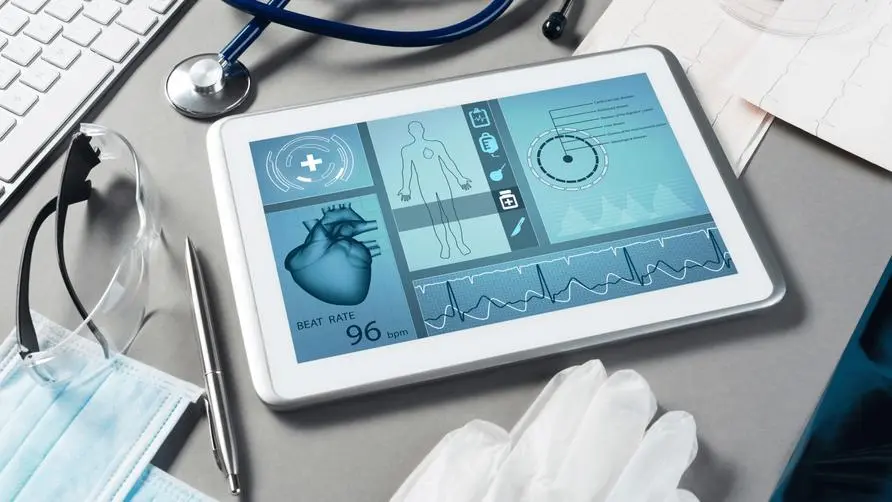Diabetes has entered the era of "digital care" but Taiwan has only approved "three pieces of software"? The European Chamber of Commerce in Taiwan calls for a "one-stop" platform to be established as soon as possible

The number of people with diabetes worldwide exceeds 460 million, and the number of patients in Taiwan exceeds 2.27 million
As social patterns and dietary content change, chronic disease care has become the most important health issue for Taiwanese people. According to statistics, at least 460 million people worldwide suffer from diabetes, and it is estimated that this number will exceed 700 million in 2025. The prevalence of diabetes in Taiwan is as high as about 11.8%, with more than 2.27 million patients with diabetes. It is not only the fifth leading cause of death, but also the third highest health insurance expenditure.
However, insulin treatment in Asian countries, including Taiwan, is not ideal. A recent study on a Bluetooth smart insulin injection device showed that 36% of patients with type 1 and type 2 diabetes did not comply with basal insulin administration. Doctor’s orders. What is even more noteworthy is that in the “real world” data survey, nearly 50% of diabetic patients with poor blood sugar control (glycated hemoglobin greater than 9.0) did not take insulin treatment as prescribed by their doctors.
To avoid taking insulin without medical advice, pharmaceutical companies call for the introduction of digital management solutions
In order to provide better disease management for diabetic patients, assisting medical institutions in introducing “digital solutions” will be an important trend in future medical care. The international pharmaceutical company Sanofi announced in December this year that it had signed a licensing agreement with Health2Sync, a chronic disease management platform that developed the “Smart Anti-sugar” App. Health2Sync stated that it will develop a digital solution for insulin management with “dynamic dose adjustment” in the future. Improve patients’ understanding of insulin treatment and strengthen blood sugar control.
The COVID-19 epidemic has accelerated the development and promotion of digital medicine. Sanofi pointed out that the cooperation with Health2Sync began in September 2020, through the Taiwan Ministry of Health and Welfare, Health Promotion Administration’s joint care network for diabetes patients in Taiwan. This insulin management solution has been introduced into more than 180 medical institutions across Taiwan, assisting more than 12,000 patients and accelerating the digital transformation of clinics and hospitals.
Sanofi has also released treatment tools such as “smart pen caps” this year that can transmit insulin dosage information. As soon as 2022, the real-world clinical efficacy of the diabetes digital care system will be published and it will apply for medical regulatory approval in Taiwan.
In the wave of digital medical transformation, 50 software products are launched in Germany and only 3 are launched in Taiwan.
The wave of digital transformation in medical care has become a trend in preventive medicine. Through data application and analysis, real-time warnings can be obtained to reduce the risk of disease. Germany was the first country in the world to allow digital medical prescriptions. In the first year after the regulations were passed, 50 health and medical software applications were applied for listing, for diseases such as obesity, depression, and sleep disorders.
In contrast, Taiwan is not as open to digital healthcare as Europe and the United States. Although it has strong information and communication technology and a mature health care environment, there are still many patients whose care needs are not met. “European Business in Taiwan” and Sanofi jointly published the “Taiwan Digital Healthcare Report - Towards the Best Digital Healthcare Ecosystem”. The report pointed out that Taiwan currently only approves three medical device software (SaMD) , and license application regulations are becoming increasingly strict. Strategically, new digital medical industries need to obtain approval from the US FDA first, making the license application process even more difficult.
Taiwan Health Insurance Database Asia’s top students move towards digital medical transformation 4 major challenges
The digital healthcare white paper also points out that in order for Taiwan to successfully achieve digital healthcare transformation, it must overcome issues such as the use of real-world data, marketing authorization and benefit applications. Although Taiwan’s health care system is considered “gifted” in Asia and has a complete health insurance database with a large amount of data utilization basis, it has not yet prepared specific standards for digital health.
The report also cited the development trends of these leading digital healthcare markets in the United States, Germany, France, and the United Kingdom, and suggested that Taiwan’s competent authorities could refer to the practices of the above countries. First, establish a cross-agency initiative plan for digital healthcare as soon as possible. Second, establish a “one-stop” platform to allow manufacturers, regulatory authorities, insurance companies and other medical care ecosystem participants to work together.
Third, the government should develop a complete roadmap for development, certification, approval and health insurance payment subsidies for digital medical solutions, so that developers can have clear guidelines as standards.
Finally, it is also recommended to establish regulatory issues before and after the launch of digital solutions as soon as possible, accelerate the launch of various digital medical solutions, and ensure that digital medical care is patient-centered.




